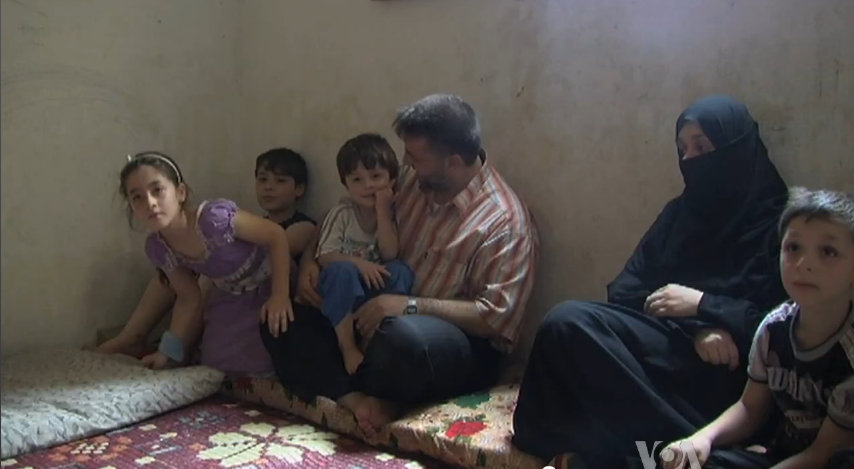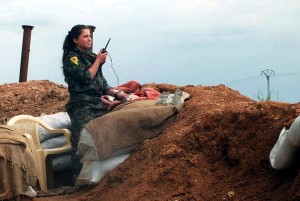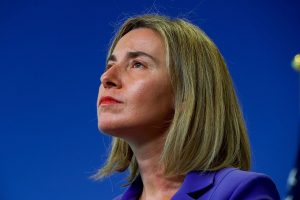by Roshan De Stone and David Suber
Under international law, refugees with a well-founded fear of persecution in their country of origin cannot be forcibly repatriated. The rights-based language used around return usually frames the issue as a humanitarian one; often obscuring the political calculations and motivations of nation states in preventing, facilitating and forcing repatriations.
Throughout the war in Syria, over 12 million people – over 50 percent percent of the pre-war population – have been displaced, either to other areas inside the country or, for nearly six million, outside of Syria.
Of those who left Syria during the seven-year long war, many have also returned. The reasons for Syrian refugees to choose to return are profoundly personal, with family reunification, access to healthcare, and deteriorating living conditions in host countries being the leading factors.
Many families agonise over the decision, having to weigh up the risks of return with the risks of remaining, often with not much more than rumours and guesswork on the local developments of the war to inform their decision.
However, the debate around refugee’s return on a wider scale is a deeply contentious topic, increasingly used by governments and politicians as a tool to push forward a specific political agenda.
The Syrian conflict began when the Baath regime, in power since 1963 and led by President Bashar al-Assad, responded with military force to peaceful protests demanding democratic reforms during the Arab Spring wave of uprisings, triggering an armed rebellion fuelled by mass defections from the Syrian army.
According to independent monitors, hundreds of thousands of civilians have been killed in the war, mostly by the regime and its powerful allies, and millions have been displaced both inside and outside of Syria. The brutal tactics pursued mainly by the regime, which have included the use of chemical weapons, sieges, mass executions and torture against civilians have led to war crimes investigations.
In July 2018, the Syrian regime made its first formal appeal to Syrians refugees to return to the country, opening reception centres to monitor return and organise which refugees would return, and to where.
The brutal Syrian regime and its allies have promoted the narrative that the war is close to an end, and that large swathes of government-controlled Syria are now safe to return to.
Alexander Lavrentyev, Russia’s Syria envoy, has supported this narrative, claiming earlier this year that the Syrian regime is “really willing to accept all those who want to come back to their country”.
Return of Syrian refugees to Syria would give the regime a legitimacy within the international community it currently lacks, opening the way for sanctions to be lifted and donor countries and companies to begin investing in reconstruction.
But the question of how safe Syria really is for returning refugees is far from clear. The UNHCR has stated that the conditions in Syria do not meet the standards of a safe, dignified and informed return stipulated by international law.
And many stories from those who have returned suggest arbitrary detention, torture, violence and forced military conscription are common.
Whilst some people have returned to relative safety, it is important to remember that out of the 721,000 Syrians who returned to Syria in 2017, over three times that number were displaced during the same year.
But for Syria’s neighbouring countries who host the majority of Syrian refugees, international support is falling short, and the desire to get rid of their refugee population has often meant welcoming the idea that the conditions in Syria are ready for return.
In Jordan, returns have happened on both a forced and voluntary basis. Last year it was estimated that around 1,000 Syrians returned every month; with roughly 100 people deported, 400 voluntarily leaving and 500 in circumstances that are unclear.
In Turkey, initial policies aiming to integrate its 2.6 million Syrian refuge population have been replaced by others favouring repatriation. And as Turkey’s footprint inside Syria becomes heavier, it has declared the creation of “safe zones” in which it plans to repatriate Syrian refugees.
Mass deportations of Syrian refugees from Turkey have also been documented by international observers since 2016, pointing to the flaws of the EU-Turkey deal by which refugees in Turkey should be guaranteed safety.
In Lebanon, the government has sent out conflicting messages. Since its statement in 2017 urging Syrians to return to regime-controlled ‘safe zones’ in Syria, President Michel Aoun has been a vocal advocate of repatriations, favouring Russia’s Initiative for refugee’s return to Syria.
However, the Lebanese Minister of State for Refugee Affairs Mouin Merehbi stated last month that at least 20 Syrian refugees who had been returned from Lebanon that year were killed by “senior officials in the Syrian Army”, questioning the credibility of the safety guarantees that the Russian Initiative promises.
The rhetoric around return has largely fallen along political lines; those aligned with the regime repeating the claim that Syria is safe for return whilst those who oppose the regime calling out such claims as false.
However, Mey Alsayegh, the Communication Manager of the Ministry of State for Displaced Affairs (MOSDA) told The New Arab how the Ministry, which was established in December 2016, was created in order to “prepare a national policy for displaced Syrians and provide a coordination platform among all local and international stakeholders to avoid the politicisation of this issue and the use of it in domestic Lebanese politics.”
Despite such aims, Alsayegh explained to The New Arab how “the official stance of our Prime Minister and Ministry is for safe, voluntary, dignified return under the auspices of the UN and mainly UNHCR, but there are still political divisions as Hizballah and the Free Patriotic Movement insist that refugees should return now and don’t want to wait for a political settlement in Syria”.
Organised voluntary returns from Lebanon have been arranged by Government’s General Security in partnership with the Syrian regime. Syrians in Lebanon who wish to return can register with the Lebanese General Security.
Lebanese General Security then gives the list of names to the Syrian regime, who vet which Syrians may return. Those Syrians allowed to return are then repatriated with the regime’s promise to give all men of military age six months to get their orders into affairs before being conscripted and provide clemency for deserters.
However, the first organised returns in Lebanon were led by Hizballah and differed from the current returns organised by the Lebanese government.
When the conflict in Syria spilled over the border into Lebanon in 2015, Hizballah was at forefront of the fighting against militias in the Bekka Valley. As part of the evacuation surrender deal agreed with Islamic State [IS] and al-Nusra fighters in Arsal, Hizballah agreed to grant transportation of fighters and their families to pro-opposition strongholds, mainly in the province of Idlib.
In parallel with these military operations, the first organised returns of refugees from Arsal were made. Most refugees were not allowed to return to their own homes but were instead returned to opposition held territory. In this way, as journalist Charlotte Alfred points out in her in-depth report for SyriaDeeply, the returns look more like an evacuation surrender deal than a repatriation.
Now, a year on, many refugees, repatriated with the support of the Lebanese government and Hizballah, are being returned to government-controlled areas. The vetting process by both Lebanese and Syrian security only allows selected Syrians back to their homes. In this way, the returns of this year resemble more closely reconciliation deals than the evacuation-surrender style deals of before.
Reconciliation deals inside of Syria tend to absorb ex-opposition fighters under the control of regime divisions or local councils and transport those unwilling to surrender to opposition strongholds elsewhere in the country – namely Idlib and its surrounding province. Empty properties are then confiscated by regime forces.
While surrender deals are usually hailed as a success due to the de-escalation of violence as an immediate result, the apparent reconciliation process only manages to temporarily stop the violence, failing to address the root causes of the conflict or pave the path for a long-term peace.
The main sponsor behind such deals is Russia, who set up a Centre for Reconciliation in Syria to manage local peace deals in 2016.
Thus, by strategically repopulating parts of Syria, Hizballah and the Syrian regime are helping to consolidate their sphere of influence for years to come. Pushing to send refugees back also carries favour with the local Lebanese population, many of whom consider Syrians as an economic burden and thus want Syrians to return.
This politicisation of Syrian repatriation is by no means a phenomenon unique to Lebanon. Just recently for example, the repatriation of Syrian refugees has been used by Turkey to increase its military interventions in Syria’s northern Kurdish regions, where Erdogan hopes to send back thousands of Syrian refugees if the Kurdish People’s Protection Units (YPG), now abandoned by their US backers – will be vanquished.
As stated by Kheder Khaddour, a Syrian social science researcher in Beirut, “the return of refugees can be misused as a card by those involved in the Syrian conflict to create a new political order that consolidates their military gains and allows them to acquire international legitimacy”.
If lasting peace is to stand a chance in Syria, we must be clear to distinguish between tactics of war and humanitarian gestures toward peace. Therefore, when looking at the issue of return, it is paramount that a rights-based approach is not abandoned for political interests.
Roshan De Stone is a human rights advocate working in Syrian refugee camps in Lebanon. She is a full-time contributor to Brush&Bow.
David L. Suber is a political researcher and journalist. He is directing a documentary on deportations from Europe and currently lives in Lebanon, where he works in refugee camps. David is a full-time contributor to Brush&Bow.
Republished, with permission, from The New Arab.






Please, can you document your statement:
The brutal tactics pursued mainly by the regime, which have included the use of chemical weapons, sieges, mass executions and torture against civilians have led to war crimes investigations.
It was the ‘invasion of Syria’ which is pictured as we see in this article. The process of journalism applied here included ‘Omitting the facts’ and then ‘Exaggerating the old claims’ to ‘Press-out’ the desired conclusion!
However, the humanitarian side of the story needs to be more concerned and suggest the authors avoid to make it a political pretext.